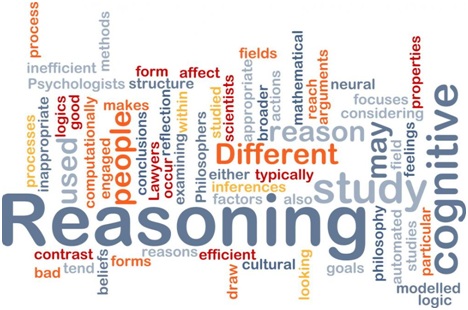 The human brain is a complex network of neurons and neurotransmitters. It is therefore, imperative for us to understand its working if we are to find out the causes and treat the symptoms caused by chemical imbalance in the brain.
The human brain is a complex network of neurons and neurotransmitters. It is therefore, imperative for us to understand its working if we are to find out the causes and treat the symptoms caused by chemical imbalance in the brain.
The neurotransmitters are responsible for ensuring proper functioning of our brain and there are two major types of neurotransmitters involved. These are:
- Excitatory Neurotransmitter—ON: These are involved in the transmission of messages.
- Inhibitory Neurotransmitter—OFF: They work at reducing the chances of sending a message.
Proper functioning of the brain requires the two types of transmitters to work in balance. When this balance is disturbed, the chances of suffering from a mental disorder increase.
Here are a few crucial symptoms of neurotransmitter Imbalance:Top of Form
- Anxiousness
- Attention issues
- Appetite control
- Developmental delays
- Low mood
- Behavioral problems
- Fatigue
- Sleep disorders
- Headaches
- Low libido
- Mood disorders
Causes of Cognitive Impairment
There are several factors that are responsible for causing neurotransmitter imbalance. Neurotransmitters such as dopamine, epinephrine, nor epinephrine, GABA, serotonin, PEA and others are responsible for keeping the mental balance. However, if their balance is disturbed, the manifestation comes in the form of cognitive impairment.
Treating Cognitive Impairment
While there are several drugs available in the market and are often prescribed by doctors as well, which claim to treat your symptoms, there are several side effects of these drugs as well. Moreover, there is always the chance of finding a drug free treatment option that will work to remove the symptoms by correcting the chemical as well as the hormonal imbalance of your body.
Here are a few tips for you to do just that:
Changes in Lifestyle
Making subtle changes in your diet can work wonders for your mental health. You are advised to avoid sugars as that stimulates the production of dopamine and serotonin—the two hormones responsible for giving the body a false impression of being high. This can lead to mood swings[i].
Increasing the levels of serotonin and endorphins though, by means of physical activity, can be helpful in allowing you to develop your focusing ability, and adding exercise to your schedule can help you with this[ii]! Similarly, following a balanced sleeping pattern benefits your circadian cycle and nourishes your mental growth as well.
Promoting Natural Neurotransmitters
Since neurotransmitters are produced in a human body naturally, adding sources of the following amino acids can help in nourishing the natural process[iii]:
- Tyrosine
- Tryptophan
- Phenylalanine
- Glycine
- Glutamate
- Glutamine
- Minerals—Copper, magnesium
- Vitamins
Balancing the Hormones
In order to avoid or treat cognitive impairment, you must have balanced hormones as well. One of the major causes of cognitive impairment is indeed imbalanced hormones[iv]. You are advised to go for bio-identical hormone replacement therapy instead of artificial HRT as that is natural and safe.
While there are other tests such as blood serum test available, the most reliable and easy test is the salivary hormone test as it allows you to enjoy the privacy and comfort of your home without causing any stress and anxiety.
Are you looking for natural methods of dealing with cognitive impairment? Let me help you in the process by finding out the root cause of your medical condition and then treating it in a natural and a drug free way. Visit LifeCraftllc to book a free 10-minute consultation on phone or Skype.
[i] Lövdén, M., Xu, W., & Wang, H. X. (2013). Lifestyle change and the prevention of cognitive decline and dementia: what is the evidence?. Current opinion in psychiatry, 26(3), 239-243.
[ii] Morgan, W. P., & Goldston, S. E. (1987). Exercise and mental health. Taylor & Francis US.
[iii] Andrade, C., & Radhakrishnan, R. (2009). The prevention and treatment of cognitive decline and dementia: An overview of recent research on experimental treatments. Indian journal of psychiatry, 51(1), 12.
[iv] Castellano, C., Cabib, S., & Puglisi-Allegra, S. (1996). Psychopharmacology of memory modulation: evidence for multiple interaction among neurotransmitters and hormones. Behavioural brain research, 77(1), 1-21.